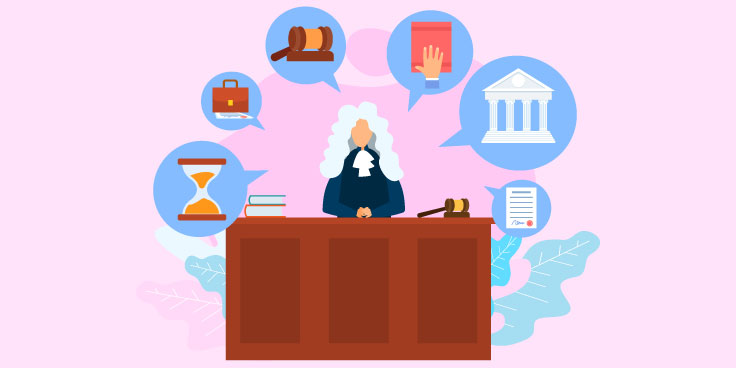When you owe someone money and they take you to court over it, the court may issue something called a County Court Judgment (CCJ) against you. This is basically the court's official way of saying "Yep, you definitely owe this money that the other person/company is trying to get from you."This formal decision confirms that you owe the debt and makes it a part of the public record, signaling to others that you have been legally mandated to pay what you owe.
A CCJ gets stamped onto your file letting everyone know you've been officially ordered to pay up.Having a CCJ against your name is not something you want, as it can complicate your life in many ways. Here's everything you should know about CCJs and why you should definitely avoid them!
How Do You End Up with a CCJ?
The most common reason, people get slapped with a CCJ is by completely ignoring letters and requests for payment from companies/people they owe money to.
Maybe you racked up a bunch of credit card debt you never paid off. Or you missed way too many monthly payments on a cash loan. Perhaps you had an unpaid utility bill or two that just kept getting bigger with late fees.
Whatever the debt is, the person/company you owe will try contacting you over and over to get their money back. If you never respond to any of their letters or calls, that's when they take you to court over it as a last resort.
At this stage, the court will also send you an official notification stating that you have been taken to court over this debt and must respond by a specified date. If you continue to disregard this notice or fail to settle the debt by the deadline, the court will then issue a CCJ against you.
So in summary - a CCJ happens when you:
- 1. Owe someone money.
- 2. Completely ignore all their attempts to recover the debt..
- 3. Don't respond to the court's formal notice..
Why You Definitely Don't Want a CCJ
While a CCJ may seem like no big deal since it's related to debt you may already be struggling with, that little mark on your file makes life way harder in many ways:
- ● It damages your credit score for 6 whole years, making it extremely difficult to get approved for loans, mortgages, credit cards, etc. during that time.
- ● Let’s current and future lenders see you have previously been irresponsible with money owed to others.
- ● Gives debt collectors more power to pursue you aggressively and even start seizing assets or garnishing wages to get payment.
- ● Often leads to county court bailiffs visiting your home or workplace to collect money you owe.
Getting a CCJ is definitely not a fun experience you want! It's much better to be proactive about resolving unpaid debts before letting it get to that point.
What Are Your Options?
While avoiding a CCJ altogether should be the goal, sometimes they do unfortunately happen. If you do get hit with one of these judgments, you have a few options:
Pay It All Now to Get CCJ Removed Quickly
If you've got the full amount you owe available, paying it immediately after getting hit with a CCJ will get that negative mark removed from your credit record within 1 month. That is the fastest way to make it disappear!
Pay What You Can Over Time
Can't afford the total debt right this second? As long as you start making reasonable payments, you can get a "Satisfied" notation added to the CCJ showing you took care of what you owed. Doesn't erase it, but looks better.
Prove You Don't Owe It to Cancel
If you legitimately don't owe this debt at all, gather evidence and apply to get the whole CCJ canceled and struck from your record completely. But you have to prove they made a mistake.
Negotiate New Terms If Affordable
If the CCJ amount or payment schedule doesn't match what you can realistically afford anymore, you may be able to get the court to adjust the terms to something more manageable for your current situation upon negotiation. However, make sure your demands are realistic.
Bankruptcy
An absolute last resort, bankruptcy can get rid of a CCJ but it utterly demolishes your credit scores and ability to borrow money for years to come. Only do this if you've got no other choice.
In Conclusion
The main takeaway? Don't ignore debt letters or chances to resolve it before a CCJ happens. But if one does get issued against you, aim to take care of it as quickly as possible to minimize the credit score damage. Communication is key to making sure a CCJ doesn't become a years-long blemish on your financial reputation.
"Warning: Late repayment can cause you serious money problems. Always consider if borrowing is the right option for you and ensure you can repay your loan." For help, go to moneyhelper.org.uk.

